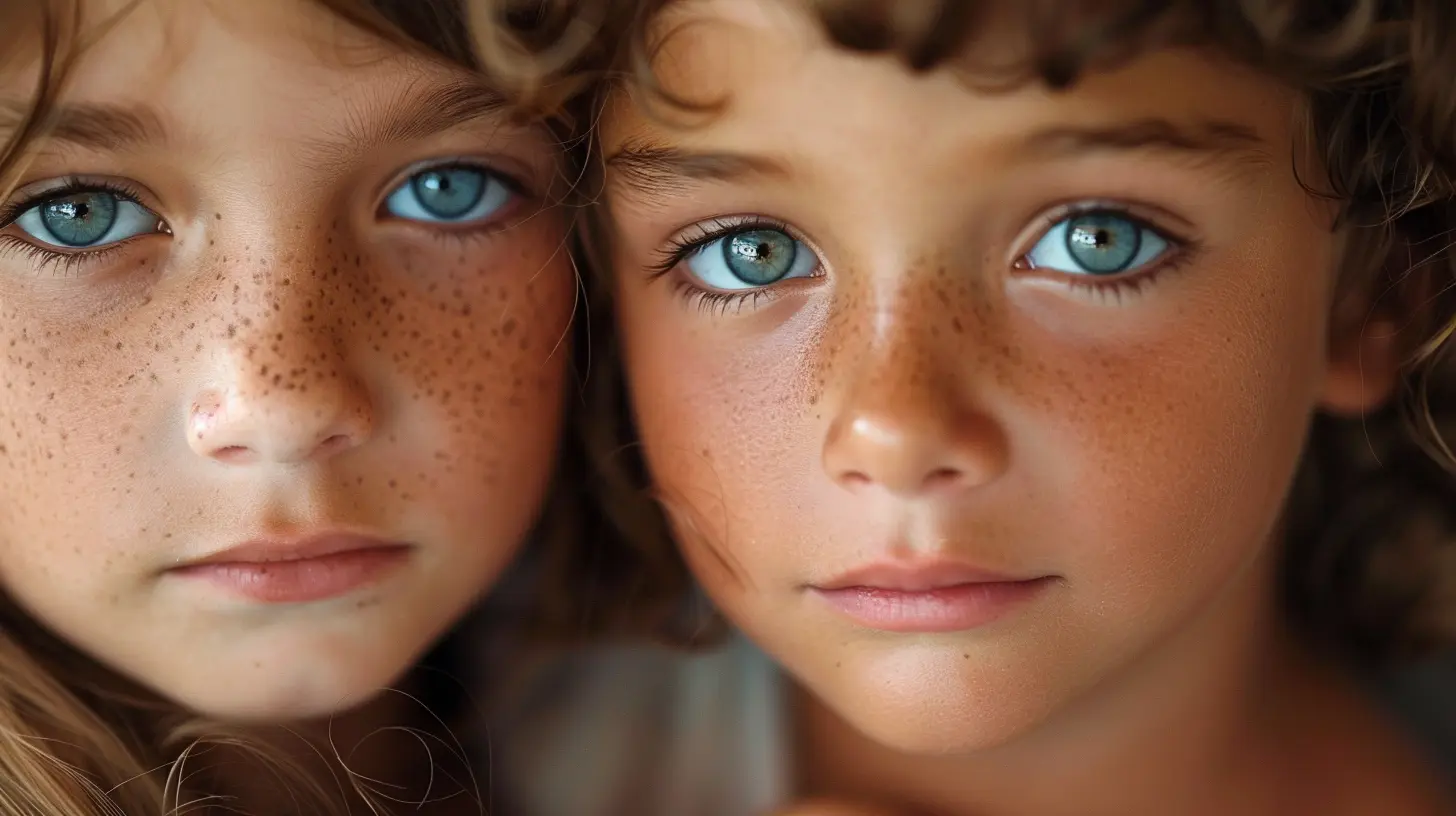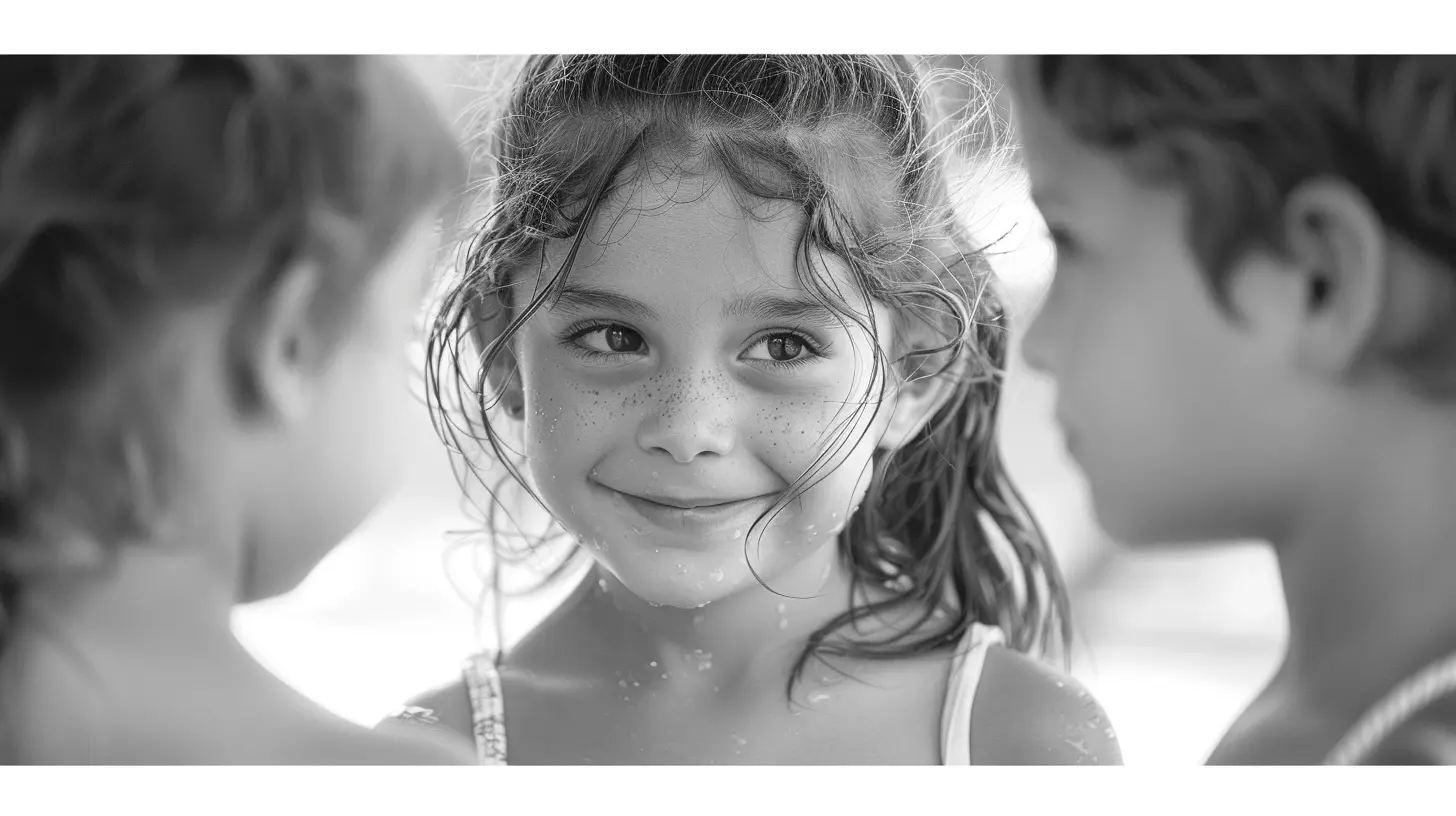Helping Your Child Through Social Struggles: Navigating Friendship Drama
1 November 2025
Let’s be honest—watching your child go through friendship troubles can break your heart into a million tiny pieces. One minute, everything’s fine, and the next, they’re crying about being left out at recess or saying their best friend “hates them now.” It’s tough, confusing, and can feel like a maze with no exit sign.
Here’s the good news: You're not powerless. While you can't exactly swoop into the schoolyard and make everyone play nice (as tempting as that may be), you can guide your child through these emotional storms. Social struggles are a normal part of growing up, and how we help kids navigate them makes all the difference.
In this article, we’ll walk through practical strategies to support your child during friendship drama, while keeping our own inner mama or papa bear in check. Let’s dive deep, get real, and give our kids the tools they need to build healthy relationships.
Why Social Struggles Are a Big Deal
You might be thinking, “It’s just kid stuff—they’ll get over it.” And while yes, kids are resilient little warriors, friendship battles can leave emotional bruises. Social interactions play a massive role in a child’s development. They shape how our kids see themselves, how they connect with others, and how confident they feel in the world.A falling-out with a friend may seem small, but to your child, it can feel like the apocalypse. So when they come to you with a teary face or a clenched jaw, it’s big to them—and that makes it important to us.
Stay Calm and Listen—Seriously, Just Listen
When our kids are upset, our first instinct is usually to fix it. But before offering advice, try this underrated parenting superpower: just listen.Let them talk, vent, cry, whatever they need. Give them your full attention. Turn off the TV, put down your phone, and make eye contact. It sounds simple, right? But in our busy lives, truly listening takes effort.
Ask gentle prompts like:
- “What happened next?”
- “How did that make you feel?”
- “What do you wish had gone differently?”
You're not interrogating. You're being a safe place.
Sometimes, just having someone truly hear them can be more healing than any solution.
Validate Their Feelings (Even If It Sounds Silly To You)
We might think it’s no big deal that Kayla didn’t invite Emma to her birthday party, but for your child, it feels like a betrayal. Don’t downplay it.Say things like:
- “That sounds really hurtful.”
- “I get why you’re upset. I would feel the same way.”
- “It makes sense that you’re frustrated.”
Validation doesn’t mean you agree with every point. It means you're acknowledging their pain. And once your child feels understood, they’re way more likely to take in your guidance.
Teach Them Emotional Vocabulary
Ever had your child scream “I’m so mad!”—only to find out they’re actually embarrassed or jealous?Kids often lack the words to express what they’re really feeling. That’s where you can step in as their emotional coach.
Help them label emotions:
- “Do you feel left out?”
- “Maybe you’re disappointed?”
- “Are you feeling misunderstood?”
This simple habit builds emotional intelligence over time. And when kids can name what they feel, they’re better at managing those feelings.
Talk About Healthy vs. Unhealthy Friendships
Friendships should make us feel good, not small. But kids don’t always know what a healthy friendship looks like.Take time to break it down:
- Healthy friends lift each other up, respect boundaries, and apologize when they mess up.
- Unhealthy friends manipulate, exclude, or put others down.
Use examples from books, TV shows, or even your own childhood (yes, even the cringey moments). These real-life stories make the message stick.
Also remind your child: it’s okay to walk away from a toxic friendship. That’s not being mean—it’s self-respect.
Build Conflict-Resolution Skills
Okay, so what happens when your child is in the middle of the drama? Here’s where we teach conflict resolution—one of life’s most useful skills.Walk them through these steps:
1. Stay Calm – Take a few deep breaths before reacting.
2. Use “I” Statements – For example, “I feel hurt when I’m left out.”
3. Listen to the Other Person – (This one’s hard, even for grown-ups.)
4. Find a Solution Together – Maybe a misunderstanding needs clearing up, or boundaries need to be set.
Roleplay can be super helpful here. Pretend you’re the friend, and let your child practice what to say. They may roll their eyes at first, but it gives them the confidence to face tough conversations.
Encourage Diverse Friendships
Sometimes, kids get stuck in the “best friends forever” loop, believing they can only have one special friend. While close friendships are awesome, they can also turn sour quickly.Help your child expand their social circle. Encourage them to sit with different kids at lunch, join new clubs, or talk to that one quiet kid who loves the same weird facts about space.
Having a variety of friendships lowers the pressure on one relationship and increases social resilience. Think of it as not putting all their emotional eggs in one basket.
Be Mindful of Your Own Reactions
Let’s be real—friendship drama doesn’t just stir up emotions for your child. It can get under your skin too. Whether it’s another kid being mean or another parent’s behavior, it’s easy to feel triggered.But kids take their emotional cues from us. If we freak out, they will too.
So before firing off a text to the other parent or marching into the principal’s office, take a breath. Ask yourself: Am I reacting, or responding?
Modeling calm, healthy conflict resolution is one of the best gifts you can give your child.
Boost Their Self-Esteem Outside Friendships
Sometimes, social struggles can chip away at a child’s confidence. That’s why it’s so important to build their self-worth in other areas.Encourage hobbies, sports, art, music—whatever lights them up. These activities remind your child: “I have value outside of what my friends think.”
Also, praise their character, not just their achievements.
Say things like:
- “I’m proud of how kind you were today.”
- “It took courage to stand up for yourself.”
- “You’re such a good problem-solver.”
Little by little, those affirmations add up.
When to Step In (And When to Let It Be)
The line between supporting and rescuing can be blurry. So when should you actually intervene?👉 Step in if:
- There’s bullying that’s repeated, targeted, and harmful.
- Your child is showing signs of depression or anxiety.
- A conflict is escalating beyond their ability to handle.
👉 Let it be if:
- It’s a one-off disagreement or misunderstanding.
- Your child is capable of handling it with guidance.
- You’re more upset than they are.
Ultimately, our goal isn’t to smooth out every bump in their social road. It’s to teach them how to navigate the road on their own.
Be Their Safe Harbor
No matter what’s going on socially, your child needs to know you’re their home base. The place they can go without judgment, where they're loved unconditionally.Remind them—again and again—that your love isn't tied to their popularity, their success, or how many friends they have.
You're their soft landing spot. And knowing that gives them the courage to stand tall in the world.
Final Thoughts
Friendship drama is part of growing up, but it doesn’t have to define your child’s story. With your support, they can develop the confidence, empathy, and emotional strength to handle whatever comes their way.So the next time you hear, “You won’t believe what happened at lunch,” take a deep breath, grab a snack, and get ready to be the rock your child needs.
Navigating friendship drama isn’t easy—but together, you’ve got this.
all images in this post were generated using AI tools
Category:
Parenting ChallengesAuthor:

Max Shaffer
Discussion
rate this article
1 comments
Cecilia McGuffin
Great insights! Navigating friendship challenges can be tough for kids, but your tips provide a wonderful roadmap for parents. Encouraging open communication and empathy will undoubtedly help our children build stronger, healthier friendships. Thank you for sharing such valuable advice!
November 3, 2025 at 4:34 PM

Max Shaffer
Thank you for your kind words! I'm glad you found the tips helpful in supporting kids through friendship challenges. Open communication and empathy are indeed essential for fostering strong, healthy relationships.


